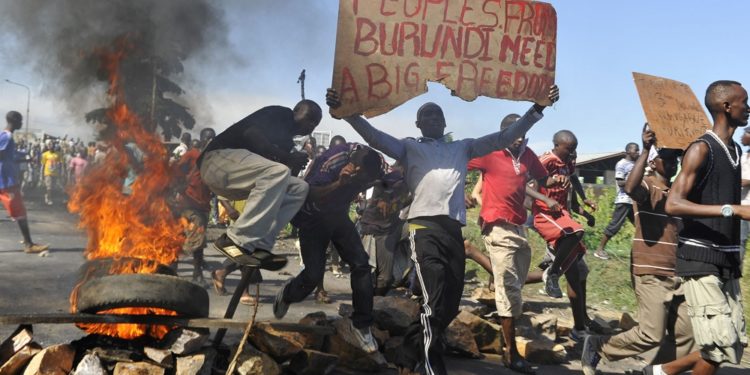By Journalists For Justice
An international human rights body has urged Burundians to use their mobile telephones to record crimes against humanity by government forces. The records may be used as evidence, should a case go to trial. Dubbed the ‘eyeWitness’ to Atrocities project and run by International Bar Association (IBA), the mobile app will help bring perpetrators of atrocities to justice.
The association designed the free smartphone camera app to help human rights defenders, journalists and ordinary civilians document atrocities from anywhere in the world, so the evidence can be verified and used in court to prosecute perpetrators of the worst international crimes.
The project is likely to face stiff opposition from the Burundian government that has warned families of victims of executions against submitting evidence to the International Criminal Court or a UN-led tribunal.
Severally, Burundi’s Attorney General called on families of victims of alleged extrajudicial executions to provide evidence for investigations, warning them not to submit it to the International Criminal Court (ICC).
Top government lawyer Valentin Bagorikunda claims evidence submitted to the ICC or the United Nations could be “manipulated”.
Such claims have been a bid to thwart collection on testimonies from 60 families who say their relatives have been executed.
“The Attorney General invites all the families of the victims… to submit their complaints and other evidence in order that investigations be initiated,” Bagorikunda said in a statement.
“If, by chance, some unlawful acts committed on the territory of Burundi have not been prosecuted, it is because they have not been reported to the public prosecutor,” he said.
However, the Burundian civil society scoffed at the assertion. “Burundi’s justice system can do nothing for victims,” said Lambert Nigarura of Burundian Coalitionfor theInternational Criminal Court.
According to IBA, the app is available in English, French and other several languages, to any Android smartphone and can be emailed directly as an android application package file to avoid leaving a footprint on users’ Google accounts.
The app allows activists to take verifiable photos, videos and audio recordings by using metadata embedded in the files – which means they can be used in investigations and trials.
Video evidence has been used in many international criminal trials, from the 1945 Nuremberg trials right up to the 2012 trial of Thomas Lubanga, a Congolese warlord jailed for child soldier crimes.
In the Lubanga case, a video showing the defendant in the presence of child soldiers was used by the ICC to prosecute him.
Hundreds have been killed and almost quarter of a million people have fled Burundi since President Pierre Nkurunziza’s controversial decision last April to run for a third term. Bujumbura blames the killings on opposition forces.
In January, UN human rights chief Zeid Ra’ad Al Hussein warned law and order in Burundi was close to collapse.
Zeid warned that Burundi was on the “very cusp” of another civil war, saying the current violence contained echoes of the country’s 12-year-conflict, during which 300,000 people were killed as Hutus rebelled against the Tutsi-dominated armed forces.







